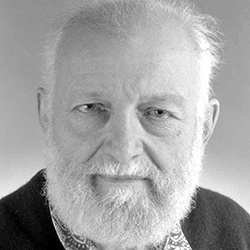Richard Levins Ph.D.
 Former, John Rock Professor of Population Sciences
Former, John Rock Professor of Population Sciences
Department of Population and International Health
Harvard School of Public Health
Discipline: Zoology
Expertise: Health Risks
Investigator Award 
Why New and Resurgent Infectious Diseases Caught Public Health by Surprise and a Strategy to Prevent ThisAward Year: 1995 This study investigates why the public health community was caught by surprise by the resurgence of diseases that were in decline such as malaria, TB, cholera and rabies, and the appearance of apparently new diseases including AIDS, legionnaire's disease, hantavirus, and Lyme disease. It looks at the results of: fragmentation of knowledge among disciplines; isolation of evolutionary ecology and social science from public health; the urgency to meet immediate human need; and institutional and philosophical biases in setting research priorities. A review determines the overlap in public health journals with ecology, biogeography, population genetics, veterinary and plant pathology literature. An analysis of health programs identifies major gaps in the epidemiology framework due to the prevailing fragmentation of knowledge. Several integrative case studies are developed for particular diseases, and a research and educational strategy for an integrative epidemiology is proposed.
Background 
He was the former John Rock Professor of Population Sciences at the Harvard School of Public Health. Mr. Levins passed away on January 19, 2016. Richard Levins was an ex-tropical farmer turned ecologist, biomathematician and philosopher of science whose central intellectual concern has been the understanding and influencing of processes in complex systems, both abstractly and as applied to evolutionary ecology, economic development, agriculture and health. He carried out his program at the theoretical level by framing the problems of adaptation to the structure of the environment in space and time, the metapopulation concept for interpreting populations in biogeography, human physiology as a socialized physiology, and the interpenetration of model building as juggling the partially opposing requirements of realism, generality and precision. His research examined the variability of health outcomes as an indicator of vulnerability to multiple non-specific stressors in human communities and short term (transient) dynamics of model epidemiological and pathological systems. He studied plant breeding and mathematics at Cornell University, farmed in Puerto Rico and obtained his doctorate in zoology from Columbia University. He taught at the University of Puerto Rico and the University of Chicago. Levins was on the advisory board of the International Society for Ecosystem Health and was a member of the American Academy of Arts and Sciences. He received awards as a pioneer of the ecology movement in Puerto Rico, for long term contributions to the development of agricultural ecology in Cuba, the Edinburgh Science Medal(Scotland) for contributions to science and the broader society, the Lukacs 21st Century Award for contributions to statistical and mathematical ecology, and an honarary doctorate in environmental science from the University of Havana.
